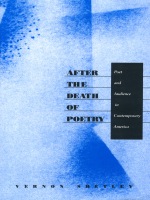
In exemplary case studies, Shetley identifies the very different ways in which three postwar poets—Elizabeth Bishop, James Merrill, and John Ashbery—try to restore some of the challenge and risk that characterized modernist poetry's relation to its first readers. Sure to be controversial, this cogent analysis offers poets and readers a clear sense of direction and purpose, and so, the hope of reaching each other again.
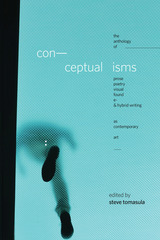
A variety of names have been used to describe fiction, poetry, and hybrid writing that explore new forms and challenges mainstream traditions. Those phrases include experimental, conceptual, avant-garde, hybrid, surfiction, fusion, radical, slip-stream, avant-pop, postmodern, self-conscious, innovative, L=A=N=G=U=A=G=E writing, alternative, and anti- or new literature. Conceptualisms: The Anthology of Prose, Poetry, Visual, Found, E- & Hybrid Writing as Contemporary Art is the first major anthology of writing that offers readers an overview of this other tradition as it lives in the early decades of the 21st century.
Featuring over 100 pieces from more than 90 authors, this anthology offers a plethora of aesthetics and approaches to a wide variety subjects. Editor Steve Tomasula has gathered poems, prose, and hybrid pieces that all challenge our understanding of what literature means. Intended as a collection of the most exciting and bold literary work being made today, Tomasula has put a spotlight on the many possibilities available to writers and readers wishing for a glimpse of literature’s future.
Readers will recognize authors who have shaped contemporary writing, as among them Lydia Davis, Charles Bernstein, Jonathan Safran Foer, Shelley Jackson, Nathaniel Mackey, David Foster Wallace, and Claudia Rankine. Even seasoned readers will find authors, and responses to the canon, not yet encountered. Conceptualisms is a book of ideas for writers, teachers and scholars, as well as readers who wonder how many ways literature can live.
The text features headnotes to chapters on themes such as sound writing, electronic literature, found text, and other forms, offering accessible introductions for readers new to this work. An online companion presents statements about the work and biographies of the authors in addition to audio, video, and electronic writing that can’t be presented in print. Visit www.conceptualisms.info to read more.
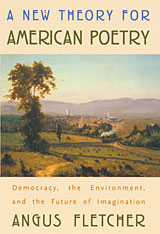
Amid gloomy forecasts of the decline of the humanities and the death of poetry, Angus Fletcher, a wise and dedicated literary voice, sounds a note of powerful, tempered optimism. He lays out a fresh approach to American poetry at large, the first in several decades, expounding a defense of the art that will resonate well into the new century.
Breaking with the tired habit of treating American poets as the happy or rebellious children of European romanticism, Fletcher uncovers a distinct lineage for American poetry. His point of departure is the fascinating English writer, John Clare; he then centers on the radically American vision expressed by Emerson and Walt Whitman. With Whitman this book insists that "the whole theory and nature of poetry" needs inspiration from science if it is to achieve a truly democratic vista. Drawing variously on Complexity Theory and on fundamentals of art and grammar, Fletcher argues that our finest poetry is nature-based, environmentally shaped, and descriptive in aim, enabling poets like John Ashbery and other contemporaries to discover a mysterious pragmatism.
Intense, resonant, and deeply literary, this account of an American poetics shows how today's consumerist and conformist culture subverts the imagination of a free people. While centering on American vision, the argument extends our horizon, striking a blow against all economically sanctioned attacks upon the finer, stronger human capacities. Poetry, the author maintains, is central to any coherent vision of life.

One of America's most important poets, John Ashbery has dazzled readers with the elusive pleasures of his work for over four decades. John Shoptaw heightens those pleasures by discovering the inner and outer workings of this incomparable poet. In readings attuned to the textual, sexual, and historical specificities of Ashbery's poetic project, from Some Trees through the vast summation of Flow Chart, Shoptaw introduces readers to the poet's processes of production.
The first reader with full access to Ashbery's manuscripts and source materials, he is able to reveal the poet at work. He shows us, for instance, how Ashbery built “Europe” and “The Skaters” upon children's books picked up at a Paris quai and how he drew on his own unpublished lyrics for the long dialogue “Fantasia on The Nut-Brown Maid.” Shoptaw argues that Ashbery's poems are less self-referential or nonrepresentational than misrepresentative: fractious assemblies of odd details, cryptic substitutions, and artful and artless discourses. He traces Ashbery's misrepresentative poetics to diverse sources—Walt Whitman, Raymond Roussel, W. H. Auden, Gertrude Stein, Elizabeth Bishop, Jackson Pollock, and Elliott Carter, among others. Ashbery's poetry, as Shoptaw demonstrates, is inevitably “homotextual” while refraining from taking homosexuality as a topic.
Ashbery disorients his poems with unexpected silences, lapses or wrong turns in arguments, mock confessions, and sudden abstractions. As this book reveals, Ashbery's misrepresentations yield a richer and stranger representation of ordinary experience. Ashbery takes his paradoxical stand on the outside looking out of an American culture and history we recognize as our own.
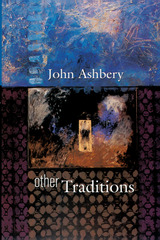
One of the greatest living poets in English here explores the work of six writers he often finds himself reading "in order to get started" when writing, poets he turns to as "a poetic jump-start for times when the batteries have run down." Among those whom John Ashbery reads at such times are John Clare, Thomas Lovell Beddoes, Raymond Roussel, John Wheelwright, Laura Riding, and David Schubert. Less familiar than some, under Ashbery's scrutiny these poets emerge as the powerful but private and somewhat wild voices whose eccentricity has kept them from the mainstream--and whose vision merits Ashbery's efforts, and our own, to read them well.
Deeply interesting in themselves, Ashbery's reflections on these poets of "another tradition" are equally intriguing for what they tell us about Ashbery's own way of reading, writing, and thinking. With its indirect clues to his work and its generous and infectious appreciation of a remarkable group of poets, this book conveys the passion, delight, curiosity, and insight that underlie the art and craft of poetry for writer and reader alike. Even as it invites us to discover the work of poets in Ashbery's other tradition, it reminds us of Ashbery's essential place in our own.
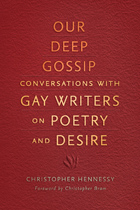

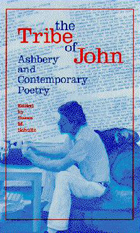
This concentration on Ashbery's influence on contemporary American poetry provides new methods for interpreting and understanding his poetic achievement.
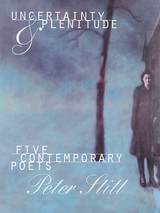
Stitt's interest in these five poets is intellectual and aesthetic. As he states, “I chose these particular writers because their work continues to interest me deeply, both intellectually and formally, even after years of familiarity.” He uses his understanding of the philosophical implications inherent in modern physics, as they apply to both content and form, as the basis for his close analysis.
Stitt attends to the poets' writerly strategies so that we may discover in their poetry where “surface form” intersects and complements meaning and thus becomes, in John Berryman's terms, “deep form.” He explains what these poets say and how they say it and what relationships lie between. He also shows how humor plays a part in some of their work.
READERS
Browse our collection.
PUBLISHERS
See BiblioVault's publisher services.
STUDENT SERVICES
Files for college accessibility offices.
UChicago Accessibility Resources
home | accessibility | search | about | contact us
BiblioVault ® 2001 - 2024
The University of Chicago Press









